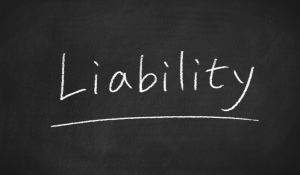Commercial auto insurance is a vital investment for businesses that utilize vehicles in their...
Comprehensive Insurance Guide for Gasoline Stations
Gasoline stations play a crucial role in modern infrastructure, serving as more than just fuel providers. Many now offer a range of additional services, including automotive repairs, vehicle inspections, convenience stores, and car wash facilities. These stations operate extended hours to accommodate consumers with diverse schedules, including long-haul truck drivers and commuters.
However, with their broad range of services and high customer traffic, gasoline stations face significant risks. From property damage to employee safety concerns, liability exposures, and environmental hazards, station owners must have the right insurance protection. Below, we explore the key risks faced by gasoline stations and the essential insurance coverage options that can safeguard their operations.
Key Risks Faced by Gasoline Stations
1. Property Damage Risks
Gasoline stations are equipped with various assets, including fuel pumps, underground storage tanks, signage, buildings, and specialized equipment for repairs and servicing. Additional facilities, such as convenience stores, contain inventory, shelving, and office furniture. Several threats can result in substantial property damage, including:
- Theft and vandalism
- Fires and fuel explosions (due to the flammable nature of gasoline and motor oil)
- Natural disasters (hurricanes, floods, earthquakes, etc.)
- Customer-related accidents (spills, improper fuel handling at self-service stations)
2. Environmental and Pollution Liability
Gasoline stations store and handle hazardous substances, including gasoline, propane, and motor oil. Potential environmental hazards include:
- Fuel leaks contaminating groundwater and soil
- Toxic waste from car washes and oil changes
- Stormwater runoff containing fuel residues
- Regulatory fines and legal claims for pollution-related damages
3. Crime and Security Threats
Gasoline stations are frequent targets for criminal activities, especially due to their cash-handling operations and accessibility from main roads. Common risks include:
- Armed robberies and break-ins (especially at night)
- Card skimming at fuel pumps
- Employee theft and fraud
- Vandalism and property destruction
4. Workplace Safety Hazards
Gasoline station employees are exposed to several occupational risks, including:
- Physical strain from long hours of standing and heavy lifting
- Exposure to hazardous chemicals and fuel fumes
- Risk of burns, eye irritation, and respiratory illnesses
- Violence from robberies or aggressive customers
If an employee sustains an injury on the job, the station may be liable for medical expenses, lost wages, and rehabilitation costs.
5. General Liability Concerns
With a high volume of daily customers, gasoline stations face multiple liability risks, including:
- Slip-and-fall accidents from fuel spills or wet floors
- Defective fuel causing damage to vehicles
- Electrical hazards from malfunctioning pumps or equipment
- Customer disputes leading to injury claims
6. Business Interruption Risks
Operational disruptions can result from unforeseen incidents, such as:
- Severe weather events causing fuel supply shortages
- Equipment failures and system breakdowns
- Regulatory shutdowns due to compliance issues
These interruptions can lead to significant financial losses, affecting revenue, payroll obligations, and fixed expenses.
7. Cybersecurity Threats
Gasoline stations frequently store sensitive customer data, including payment information and personal details. This makes them prime targets for cybercriminals. Key threats include:
- Data breaches compromising customer information
- Ransomware attacks on digital payment systems
- Fraudulent transactions and identity theft
- Regulatory fines for data privacy violations
Essential Insurance Coverage for Gasoline Stations
To mitigate these risks, gasoline station owners should consider the following insurance policies:
1. General Liability Insurance
Protects against claims related to customer injuries, property damage, and accidents occurring on the premises.
2. Commercial Property Insurance
Covers repair or replacement costs for damaged buildings, equipment, fuel pumps, inventory, and other assets due to theft, fire, or natural disasters.
3. Environmental Liability Insurance
Provides financial protection for cleanup efforts, legal expenses, and fines related to accidental fuel leaks, spills, and pollution claims.
4. Business Interruption Insurance
Compensates for lost income, fixed expenses, and payroll costs in case of temporary closures due to covered disruptions.
5. Workers’ Compensation Insurance
Covers medical expenses, lost wages, and rehabilitation costs for employees injured or falling ill due to work-related hazards.
6. Commercial Crime Insurance
Also known as fidelity insurance, this coverage protects against financial losses from employee theft, fraud, and other crimes.
7. Cyber Liability Insurance
Assists with legal costs, data recovery, notification expenses, and reputation management following cyberattacks or data breaches.
8. Additional Coverage Options
Depending on individual business needs, station owners may also consider:
- Liquor Liability Insurance (if selling alcoholic beverages)
- Employment Practices Liability Insurance (EPLI) (protection against employee lawsuits)
- Commercial Umbrella Insurance (provides extended liability protection beyond general liability coverage limits)
Safeguard Your Gasoline Station with Comprehensive Coverage
Operating a gasoline station comes with a unique set of challenges and risks. The right combination of insurance policies can help owners safeguard their business, employees, customers, and financial assets from unforeseen threats.
For tailored insurance solutions and expert risk management guidance, contact us today at 909.466.7876 to ensure your business stays protected against potential liabilities.
Also, find out Why Business Interruption Insurance Is Essential for Small Businesses and the 10 Essential Items Covered Under Business Personal Property.




